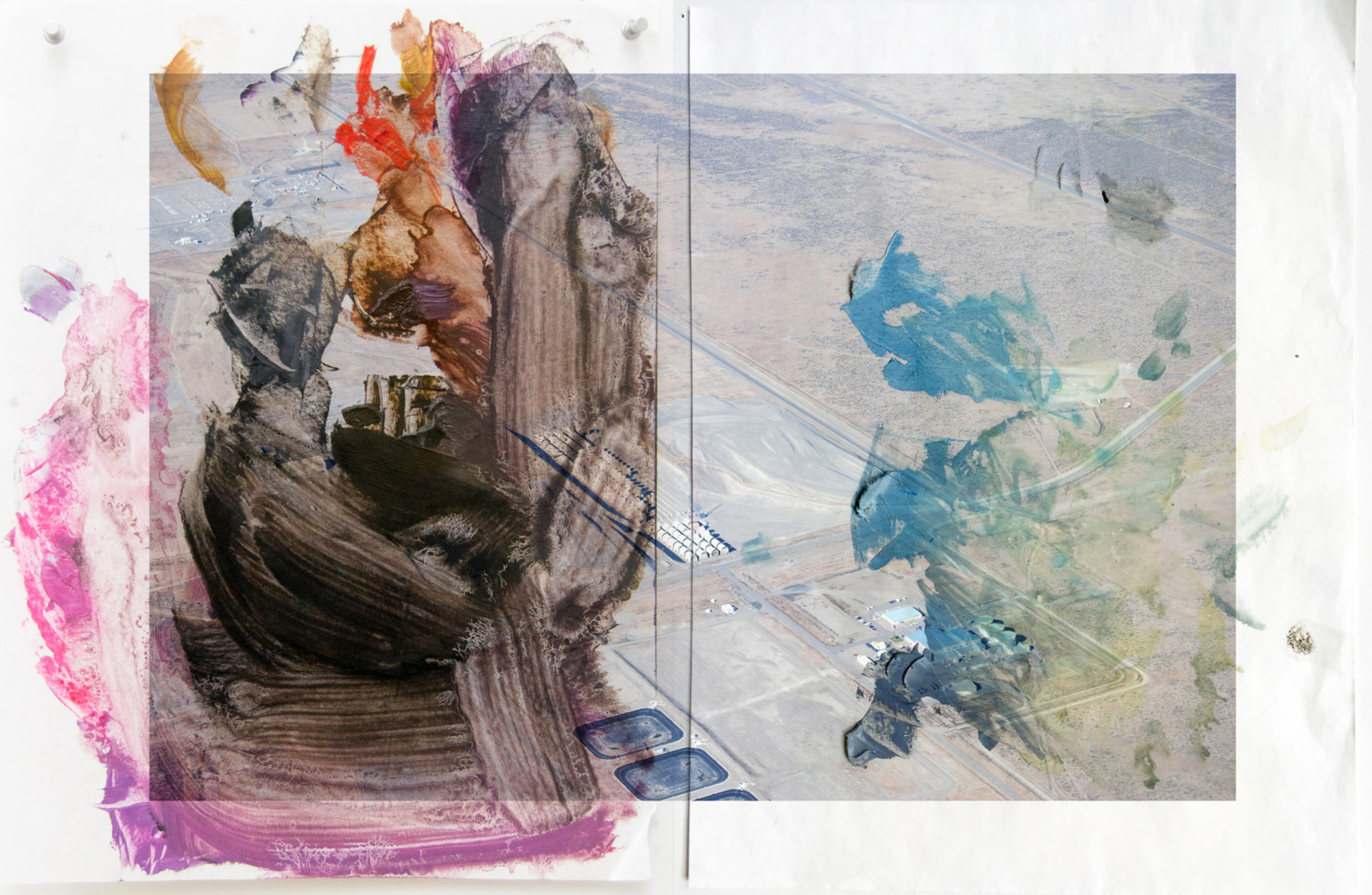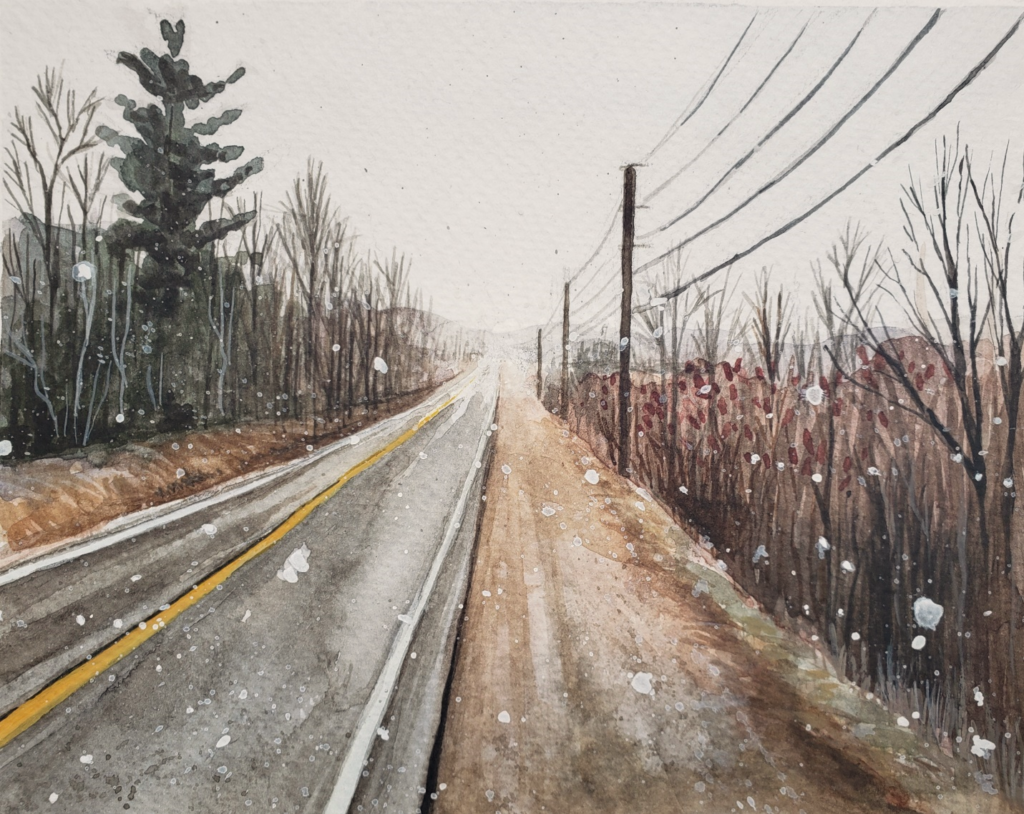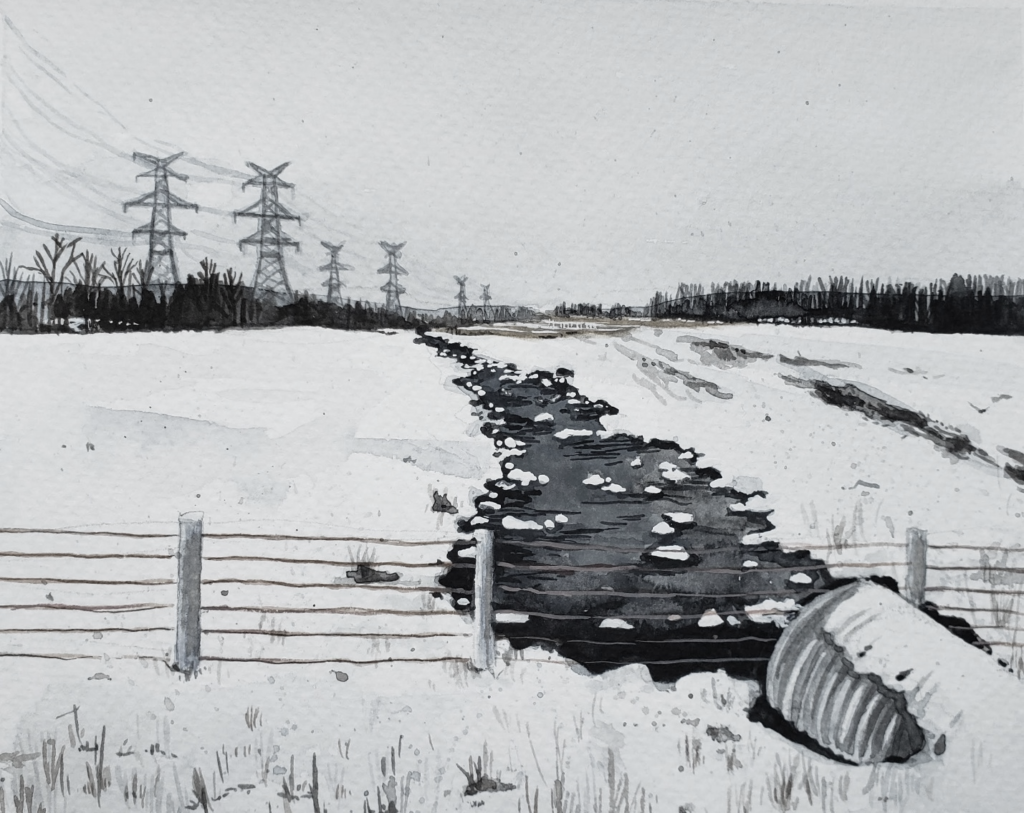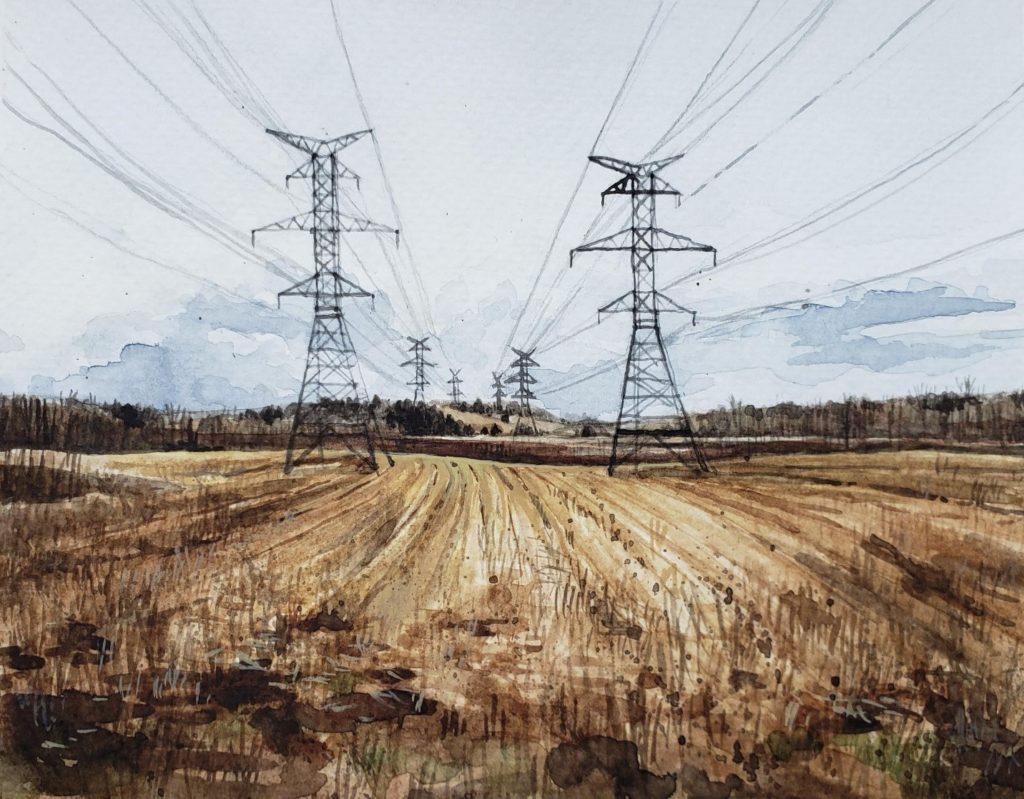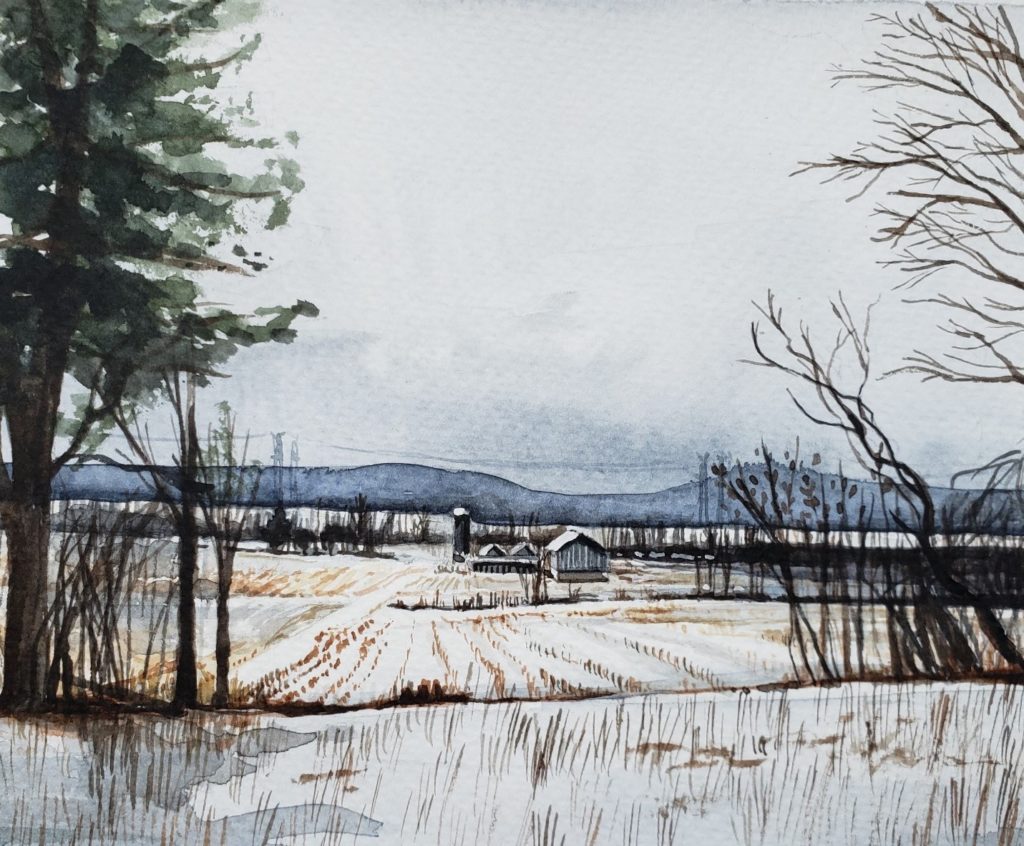Back to Issue 12
A reflection on walking during Spring 2020, the beginning of lockdown in Ontario, Canada, inspired by Wendell Berry’s poem “Sabbaths-1979, IV”
By Katie Schmidt
It’s March and the church is closed. Sundays pass like silences. We say grace with the radio on and move awkwardly around the house, seeing each other as strange planets—aware, suddenly, of our different atmospheres, some more vulnerable of breach.
In the beginning of the lockdown, time plays tricks on me. I age backwards. I am moving home from university. I am 18 again. I am getting hyperactive with my brother, intoxicated with sugar and too much time at home. I can do nothing but sleep and think of myself.
When I was a child, my family would go on long Sunday hikes after mass. Tramping through the network of trails behind my house, I was always half-running to keep up with everyone. When I was a child, the time it took to hike those trails seemed so long that I could not imagine the end until we arrived. The hike was as long as the distance to Christmas, as long as the drive from Ontario to Michigan to see my cousins, as long as it took to wash dishes on a Saturday afternoon.
That incomprehension of time returned to me—the days blurring into one, unending Sunday hike. I thought of Wendell Berry’s “Sabbath” poems, of leaving behind walls and crowds and pews to celebrate the Sabbath in the woods. To “take up a different story,” as Berry says.
Our woods are closed for business: the lonely paths too dangerous for the space-starved new hermits of Ontario.
So I took to the road. Day bleeding into day, I walked the nine-kilometer block around my house: Fifth Line with its archway of trees, 17th Sideroad, the farmland pouring out either side of the road, dusty Fourth Line with the trucks careening past towards the quarry, and 22nd Sideroad, the hills diving towards home.
Fifth Line, 17th Sideroad, Fourth Line, 22nd Sideroad. Road names tossed around like the names of family friends.
When I walked it the first time, the familiar pattern of trees intercepted by driveways, by fences, by the oddly threatening sign “My dog can make it to the fence in 5 seconds, can you?” tugged up the buried nostalgia—museum exhibits of my childhood memories, of animal chases, kids from down the street, the road to my first job, to the next town over, to the city.
Sometimes, when I walked, I thought about the empty church. I never was the best Catholic, but the mass embedded itself in my bloodstream—something about the sacred boredom of so much repetition, cycling through the weeks, through the liturgical seasons, through the unbending ages of the church. There, too, were the old memories of trying to sing inaudibly in the children’s choir, of being too shy to shake the hands of strangers or wave to the kids I knew from school, of trying to walk without tripping to the altar.
Walking, always walking on this unending morning. Hovering somewhere between the first and second reading, and before the hallelujah.
Fifth Line, 17th Sideroad, Fourth Line, 22nd Sideroad.
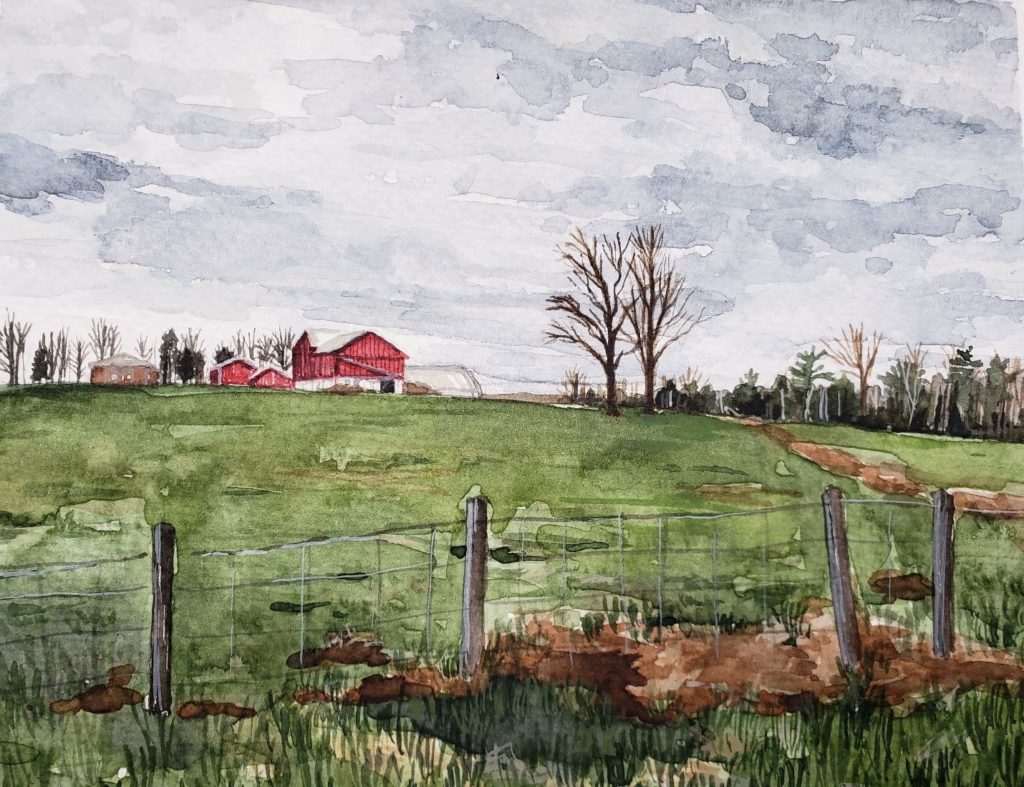 “The Corner of Fifth and 17th”
“The Corner of Fifth and 17th”
I reread all the poetry I’ve loved and try to find words that sound different from those on the radio—”Strewn remnants of the primal Sabbath’s hymn.”
Snow turned to mud and froze and was hidden by new snow melting into last year’s leaves. The farmer at the corner of Fifth and 17th built a new fence and moved the cows into the front pasture. The cows blinked curiously at a creature walking with no place to go. One day a dead snake on the road and the next day a live one. The slow and wonderous changes of land coming to life regardless of restrictions. “The life that steps and sings in ways of death.”
Some days as I walked, I saw nothing—nothing but the dust of a drive-through town on the outskirts of a world losing itself. But on days when my steps echoed—just right—along the grass-kissed-gravel, the walking became its own kind of poetry. The scenes along these repeating roads shone with an ancient, untiring newness and leaned in as if to whisper a final, perfect secret—one I can’t yet grasp.
But, maybe tomorrow.
Katie Schmidt is an aspiring poet and painter from the farm country of southern Ontario, who is inspired by long, boring walks and laughing at herself. She received a B.A. from the University of Toronto and will be receiving a Master’s of Arts and Religion from Yale Divinity School.
